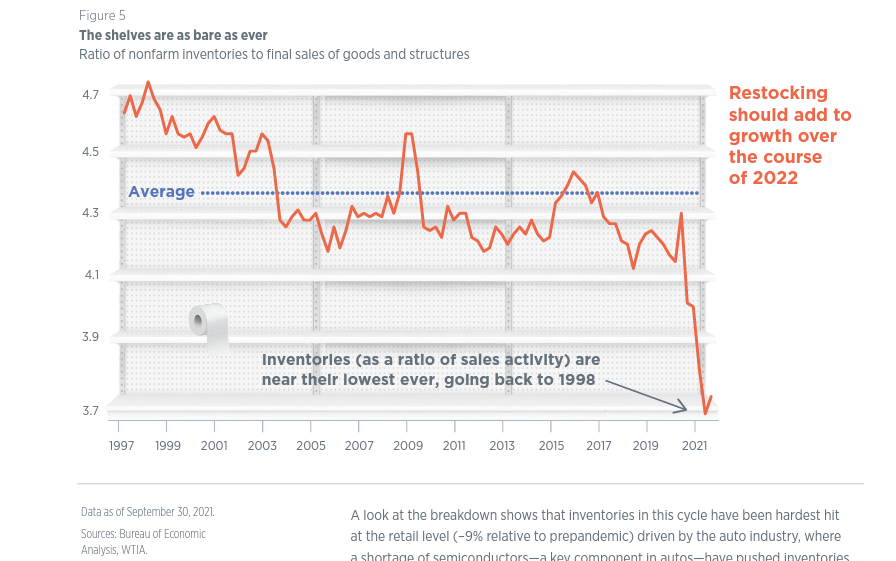After two years of a pandemic that has mutated its way into impacting every aspect of life, it can feel like there’s not a lot to hope for.
But according to Wilmington Trust’s 2022 Capital Market Forecast, darkly titled “Economic Arrhythmia: Businesses adapt to resource disorder,” most of the 1,000 business owners surveyed are feeling optimistic — even very optimistic — about the future.
That’s despite labor shortages, supply chain disruptions and COVID-19 surges.
A whopping 87% of business owners surveyed said they were optimistic about their business, and 77% were optimistic about the US economy overall, just a bit less than the 81% reported in the first quarter of 2020, pre-COVID.
There are caveats and gaps, as you might expect. Large companies are weathering supply chain disruptions far more easily than small business, with 88% of large businesses seeing an improvement in the supply chain over the summer and fall compared to 52% of small businesses. Large companies were also twice as likely to have been able to increase capital spending in order to address labor issues, with nearly half of large businesses making an increase compared to 23% of small businesses.
Just under half — 44% — have raised wages due to labor shortages, with 45% providing better benefits to employees.
See the reportRemote work has become a standard offering for many businesses, and for those who are keeping a remote work model for at least some employees, 60% plan to reduce office space. Still, less than half say that COVID-19 is the biggest factor impacting their business over the next 12 months (it was the most cited factor, however).
The Paycheck Protection Program is cited as an important factor in keeping their businesses afloat, or even helping them grow, in 2020.
One case study of Alliance Material Handling, a Maryland-based warehouse solutions provider that has a location in Delaware, highlighted PPP as the reason for its growth since 2020. Chairman and CEO Thomas Albero said the company was on the verge of laying off a quarter of the company when PPP came out, and gave workers jobs like painting when they were unable to do their regular jobs due to the pandemic. Alliance was able to make a profitable business deal during lockdown, and by the time warehouses reopened, its forklift repair services were in high demand.
Low wages are cited as a big reason for the labor shortage, but even bigger is the impact of technology on most industries. In many cases the gap is caused by what the report calls skills mismatch, or lack of effective labor, at least until workers can be retrained. Indeed, we have seen significant investment of New Castle County CARES Act funding aimed at workforce development and an increase in technology coding programs in Wilmington, where people looking to fill those gaps have several options to choose from, including Zip Code Wilmington, Code Differently, IT Works, Tech Elevator and Delaware Tech Community College.

Some growth is expected to happen simply because some levels have dropped so low. Inventories plummeted in 2021, and the anticipated restocking period in 2022 is expected to add growth over the year.
Possibly the biggest takeaway is that tech is driving anticipated upswings in growth across the board, with the information technology sector by far the largest at the end of 2020, taking up 28% of the S&P 500 allocations, way up from 6% in 1989.
You can explore the full report by Wilmington Trust, a subsidiary of M&T Bank, on its survey page; a link to the PDF is at the top. What do you think about the results of the report? Are you feeling as optimistic about the future of your business and the economy? Give us your response via delaware@technical.ly.







